How many kilograms of potatoes are in a bucket?
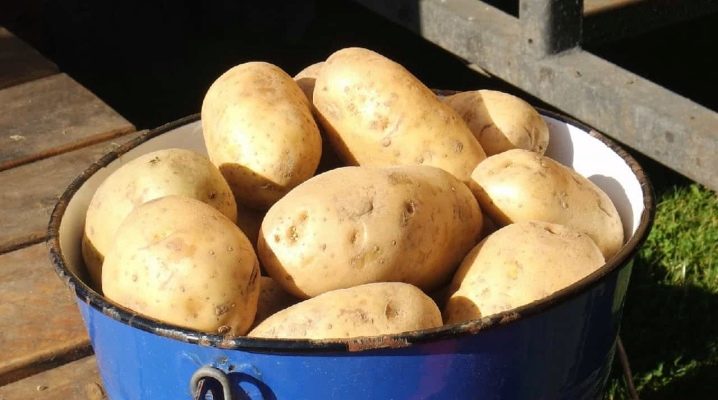
If you buy potatoes in the village or at the market from the villagers, you usually have to measure the goods not in kilograms, as the townspeople are used to when buying this product in the supermarket, but in buckets or even bags. In rural areas of central Russia, potatoes have never been measured in kilograms. It just so happened that the yield of this crop in the specified area is quite high, so it is better for the seller to add a little to make the bucket "with a slide" than to measure the weight of the goods on the scales.
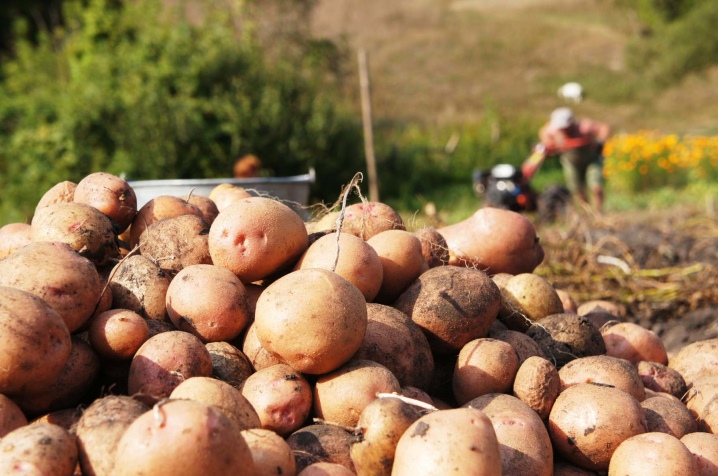
However, such a purchase is not always convenient for city housewives. To avoid unnecessary conversations, which, by the way, can seriously offend the seller, it is better to know in advance how many kilograms of potatoes can fit in a certain volume.
This will make it quite easy to convert buckets to kilograms and vice versa without unnecessary discussion.

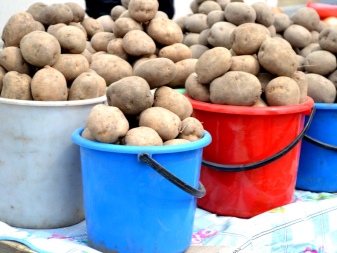
How much do potatoes weigh in different buckets?
If you need to buy potatoes at the market or in the village, you must take into account that the buckets are different: plastic, enamel, galvanized. When weighing with a bucket, you will have to take into account the difference in tare weight. So, weighing in an enameled or galvanized standard bucket, you can get the weight of potatoes with a container 2 kilograms more. If you use a plastic bucket, the difference may be different.
That is why in rural areas it is customary to measure potatoes in conventional buckets, in general, regardless of the material from which this container is made. It is customary to distinguish buckets only by volume. Assuming that 1 liter of water weighs 1 kg, you can easily calculate the weight of water, for example, in a container with a volume of 10 liters - correctly, it will be 10 kilograms. But with potatoes, everything is different, the space between the tubers is filled with air, and has no weight.
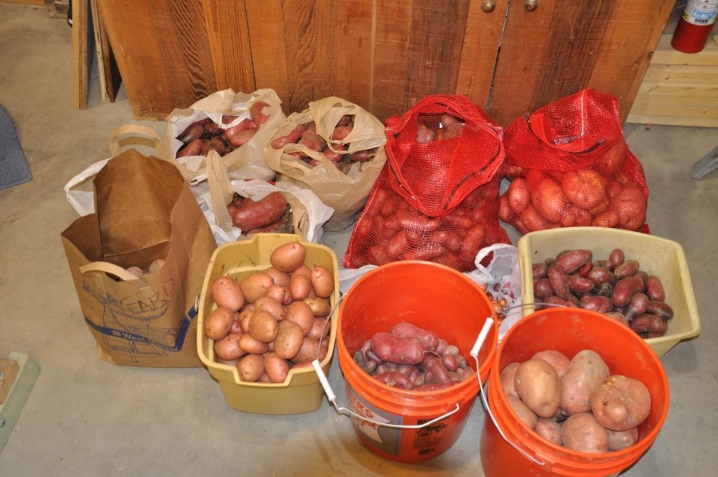
Thus, an average 10 liter bucket of potatoes will be less than 10 kg.
Long-term folk experiments and calculations of specialists have shown that about 6.5 kg of large tubers and about 7.5 kg of small tubers are placed in such a volume. In this case, the bucket should be with a small "slide".
A large bucket with a volume of 12 liters can hold 10 kg of small potatoes and about 9 kg of large ones. Sometimes it is necessary to buy very little potatoes, in which case you can choose potatoes in a 5 liter bucket. This will be about 3 kg, if the tubers are medium-sized, then maybe 3.5.
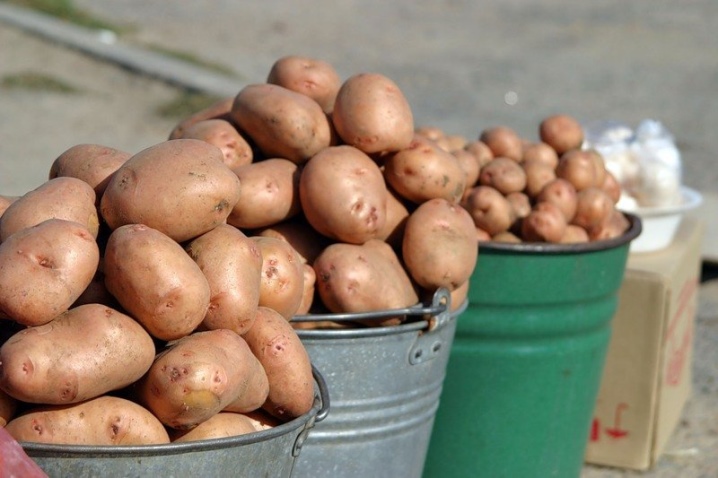
You can calculate the weight of potatoes, for example, in 3 buckets, based on the volume of the buckets and the size of the tubers. If you need to buy potatoes for the whole winter, with a bookmark in the cellar, you can talk about 10, 15, 20 or 30 buckets. But then, most likely, you will have to resort to another unit of measurement - bags.
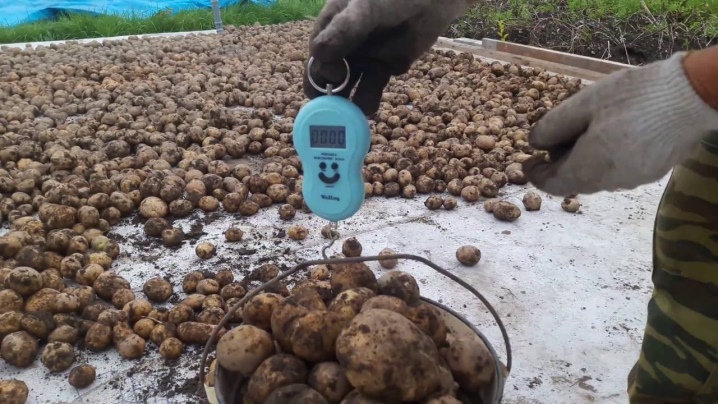
How to calculate correctly?
The most accurate way to determine the weight of a potato would be a rigorous scientific calculation: collect the tubers in a bucket, and then weigh each potato separately, adding the result. In this case, there can be no error. Yes, and gaining 1 kg, you can put the tubers on the scales until the desired weight is reached. A great method, now imagine all this in the village or in the market, when you measure, for example, 20 or 30 kilograms. And potatoes are not peas, and you still have to take either more or less than the required weight.
So you have to resort to units of measurement that have been tested over the years: in buckets and bags.
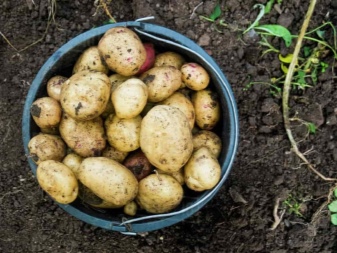

The weight of a potato is due to several factors. Freshly dug, as a rule, is heavier than the one that was stored in the cellar for several months, this is especially noticeable when the storage conditions are violated, when the potatoes lose moisture.The greatest discrepancy occurs with the so-called last year's potatoes, which have lain in the cellar for about a year. Thus, weight loss can be associated with sprouting, the sprouts can be removed, but the tuber weight can be reduced by half.
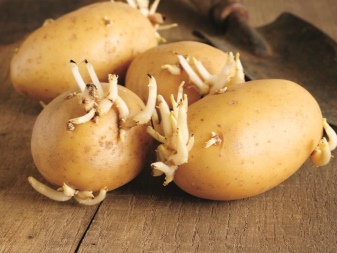
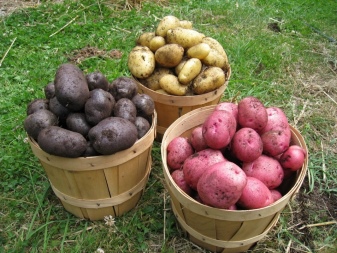
These tubers can be easily distinguished by their shriveled rind. Potato weight is also related to the size of the tubers. A bucket of small potatoes is heavier than one filled with large tubers. Everything is simple here, there is less air between small potatoes. Another factor may be the shape of the tubers. Medium-sized oblong tubers are packed denser.
It is hardly possible to take into account all these characteristics when buying, and the seller, most likely, has difficulty imagining the difference in weight between a round and an oblong potato, especially since two identical tubers simply do not exist.
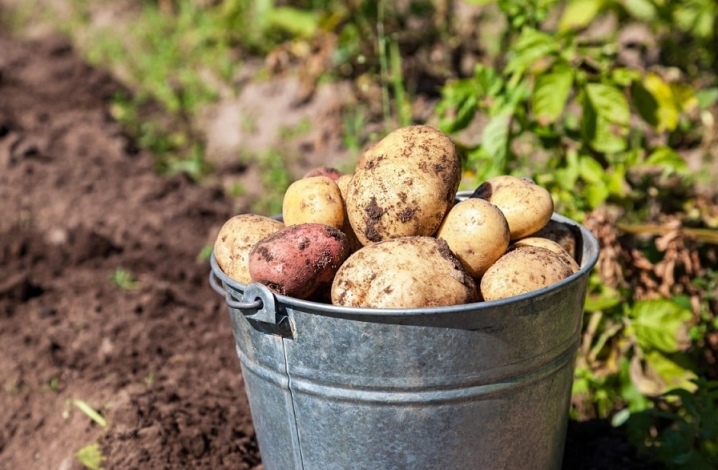










The comment was sent successfully.